DA CRUZ/ “Da Cruz Mixtape”
By now most BoL readers know I have a thing for Brazilian music. It’s some “just do” ish, i.e. “I don’t know why, I just do.”
Except I am clear it’s (probably) mainly because I like the mix of melody and rhythm; new world melodies and west African rhythms, constantly updated, and at the same time constantly reduced to basics, sort of like a complex roux used to create a big pot of gumbo. The roux being the beginning point, the gumbo being the end point, and how you get from one to the other being the art of cooking. Brazilian music is the travel from roux to gumbo.
Or something like that.
Anyway, here is some more of that creole craziness that is utterly predictable and at the same time simply irresistible. By creole, I simply mean a mix of foreign fruit and ancestral roots.
(Kalamu, you’re getting a bit out of touch with the metaphors. What the funk are you saying?)
Glad you asked. I’m saying Da Cruz is the latest manifestation of one of the major paradigms of modern western hemisphere culture: European production mated with African creativity, usually in the form of white males and black females.
I could talk about it without being blunt but that would be avoiding the obvious simply because I don’t mean for my bluntness to offend anyone—some of us are uncomfortable openly discussing what is clearly before us.
I do not mean to suggest that black female/white male is the only, or even the dominant, production mode happening in the music, or in western culture in general, but I do believe this is one of the major syndromes.
(And now for another aside guaranteed to upset the squeamish: you ever notice that there aren’t that many examples of successful black male/white female musical productions, the most famous and almost sole exception being Rick James/Teena Marie, yet the other way around abounds in our culture.
I know about all that "the white man ain’t afraid of the black woman" bullshit… tell that to Nina Simone. Moreover, there is no serious evidence that white women are afraid of black men, by which I mean this whole "the different races are afraid, or aren’t afraid, of each other" is terribly tired. Race in and of itself is nothing to fear, or for that matter to love.
The crossroads of gender/race and music can not simply be reduced to a simplistic "opposites attract" binary and at the same time we can’t pretend that the old categories don’t matter, as if simply ignoring the elephant makes the elephant disappear.
The truth is far deeper in our socially constructed psyches.
Moreover, our notion of gender may be deeper and far more malicious than many of us are willing to admit, and in the final analysis are even more destructive than our notions of race, or as Langston Hughes pointed out long, long ago: race breaks down at night… let’s get back to the music.)
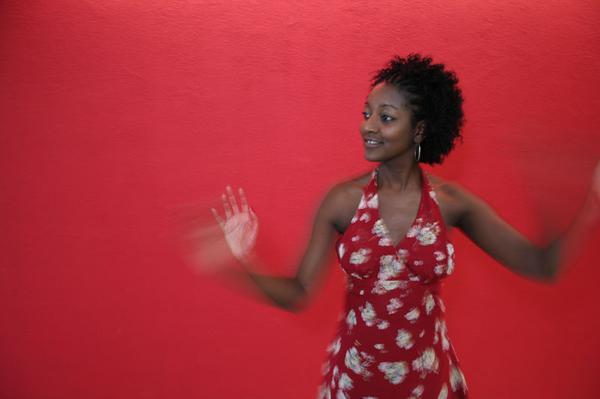
I fear, the story of my singing career could bore you. I sung in the church choir, like almost all brazilians do. The next step was to sing in a club in Campinas, a city near Sao Paulo. It wasn't a very chic place - I think today it is a brothel… but I had the chance to sing there regularly. I choosed the saddest bossa nova ballads I knew, and the scenario was always the same: the tourists have been amused and drunk their wines, and the Brazilians started to cry. There I discovered, that my voice has the power to move the people.
—Mariana Da Cruz
Finally we make Pop music. Transglobal, electro-acoustic Pop with a Brazilian soul and a heartbeat as precise as a Swiss clockwork. And if you listen well, you even hear some Swiss cowbells in the background.
—Mariana Da Cruz
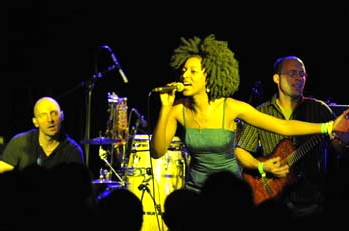
Da Cruz, like the archetypal Zuco 103, is a Brazilian woman fronting a European (Swiss) production crew, in this case vocalist Mariana Sidelça Benedita Da Cruz and producer Ane Hebeisen (aka Ane H.), plus guitarist Oliver Husmann.
Ane H. has twenty years experience performing and touring worldwide with his band Swamp Terrorists. He is one of the pioneers of electronic dance music. He was looking for a singer to work on a new project and heard Mariana in Lisbon, where she had gone to see and seek other venues.
One thing led to another and eventually they began working together and jointly decided to embark on Da Cruz. After retreating to the Swiss Alps for half a year or so to work on Da Cruz music, they produced two EPs (distributed in the USA by Six Degrees Records), which in turn transformed into their debut release Nova Estacao.
Nova Estacao included contributions from famed Brazilian percussionist Duduka DaFonseca, who formerly was the drummer for Antonio Carlos Jobim.
Their second album, Corpo Electrico, was recorded partly in Sao Paulo, Brazil and partly in Berne, Switerland. That album included the participation of percussion Bolao, trumpeter Johannes Walter, acoustic bassist Christoph Lenz, and the British producers Da Lata.
It would be a major mistake to assume a body-beauty/brawn-brains duality to explain their partnership. Yes, Ane is responsible for the electronic sound of Da Cruz but Mariana is equally, if not more so, responsible for the musical direction. Born December 1987, Mariana’s grasp of the sociological and political realities far exceeds her youth.
She speaks with candor about one of her songs, “Sarah,” which examines the plight of a young Brazilian woman adrift in the new world. When Mariana was singing in the bars and dives of Lisbon, she harvested the deep understanding of life lessons from her own experiences and the experiences of people she observed.
I know a lot of girls like Sarah. Brazilian girls they went to Europe with the illusion to have a better chance here. Sarah I met in Lisbon, where I lived for some years. She always came in the club where i was singing, and she always sat on the same table and cried. She left her children in Brazil and wanted to find a good job in the old world. But she failed. She couldn't send money to her family, she missed her children, sold her body and lost her dreams. As I told, I know a lot of girls with a history like that. I had better luck. And I didn't come to Europe to find a better life, I was rather curious about an other life.
—Mariana Da Cruz
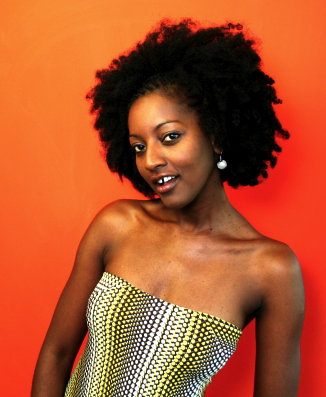
So why do some succeed and others of similar background and talent fail? What makes us notice one and ignore another? What is a new artist to do?
I remember getting really, really upset when I read Louis Armstrong’s admonition and advice to a fellow artist: get you a good white man to stand behind you and you’ll be alright.
Really???!!!
Some years later I was active as a producer in the music world, including four years (1983–1987) as director of the New Orleans Jazz & Heritage Foundation, the parent organization of the globally celebrated New Orleans Jazz & Heritage Festival, plus roughly 20 years working as a DJ on WWOZ radio New Orleans. As painful as it is to admit it, what Pops said is true.
The world is not fair. And though there have been many, many changes politically—for most blacks in both the old world and the new world, the economic facts of life are still overwhelmingly dominated by whites.
Da Cruz’s music is good but not particularly cutting edge. Mariana’s vocal work is also good but so are at least six or seven other young Brazilian singers I could name. What is the difference? It’s not simply marketing, although that certainly helps a great deal.
I believe what we have here are two people (Mariana and Ane) who thoroughly understand the sea within which they swim and are also thoroughly dedicated to sailing. They work under no illusions about building mansions or even retirement homes. They are pop artists committed to making music for enjoyment without even a pretense to political struggle.
Mariana has insisted on acoustic elements, on reflecting the Brazilian soul. Ane is expert at using electronics to put the rhythms and melodies together. She is an architect, he is an expert carpenter. She has ideas. He has contacts and industry experience. Judging from the one video interview of the two of them together that I’ve seen and a clutch of short print interviews with Mariana I’ve read online, I believe Mariana is guided by a finely calibrated inner spirit that thus far in her young life has guided her forward well past some who have been working at this business longer than she has been on this earth.
I will close with three short quotes from Mariana. One speaks to the reality of cultural identification and also speaks to her recognition of how easily entertainers and whole cultures are stereotyped. The second quote comments on one of her songs, “Intro (Sao Jorge)” and recognizes the life and death issues involved in the larger struggles of Brazil. The third quote identifies Mariana’s inclination to be a poet rather than a politician.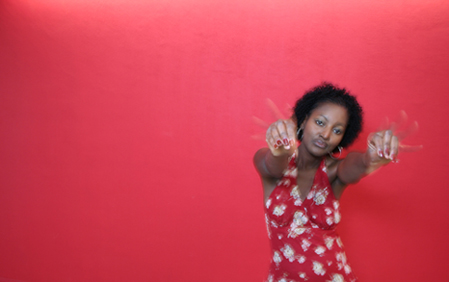
Da Cruz stand for a modern, a curious and a proud Brazil. There are so many boring clichés around, about my country. With my music I try to show, that there is a Brazil far away from carneval, bikinis and samba-plumes – there is also an urban, progressive, open but still romantic Brazil with a sane respect towards its traditions and culture.Draw your own conclusions about her statements, about Da Cruz’s music, about what you should or should not do with this information. I appreciate Da Cruz as a 21st century pop music band and support the young sister Mariana Da Cruz who is willing to face the realities of life as she dances.
—Mariana Da Cruz
In Brazil we see Sao Jorge as a protector, not as an agressive warrior. I have chosen this methaphor because there are so many things going wrong in Brazil at the moment, that I have the impression, we need a kind of protection. A protection against corrupt minds, against social injustice and against ignorance. The problems in my beautiful country are huge. So for this we need a true warrior. One who can kill dragons.
—Mariana Da Cruz
I think Gilberto Gil does a good job as cultural minister in Brazil. But the last concert I've seen of him at the Montreux Jazz Festival was a little bit boring. He acted like an ambassador on stage, wanted to explain the whole brazilian music history. For me, poetry has a bigger power than political slogans, because poetry - in the best case - doesn't know any vanity.
—Mariana Da Cruz
Or, as she says: yes, I am Brazilian black but I don’t dance samba (meaning, I don’t trade in clichés for tourist entertainment). There’s a new world coming.
—Kalamu ya Salaam
Da Cruz Mixtape Playlist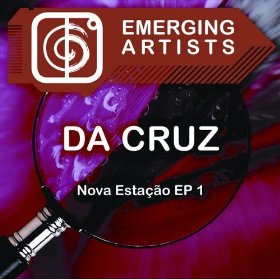
From Nova Estação EP 1
01 “Intro (São Jorge)”
02 “Sarah”
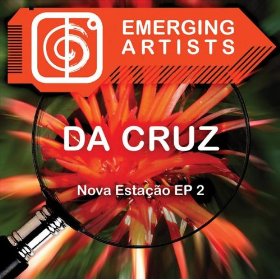
From Nova Estação EP 2
03 “Taj Mahal”
04 “Perdida”
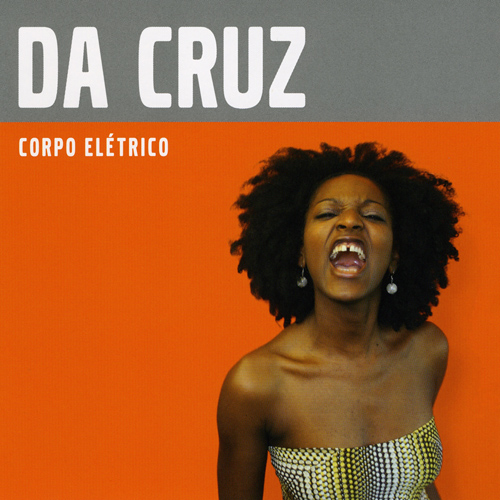
From Corpo Electrico
05 “Bata”
06 “Menina Mulher Da Pele Preta”
07 “Rosa Brasileira”
08 “Agua Do Chao”
09 “Pode Ser”
10 “A Cura”
11 “A Demora”
This entry was posted on Monday, April 20th, 2009 at 12:03 am and is filed under Contemporary. You can follow any responses to this entry through the RSS 2.0 feed. You can leave a response, or trackback from your own site.
One Response to “DA CRUZ/ “Da Cruz Mixtape””
April 22nd, 2009 at 4:37 am
Da Lata, Sidestepper, Zuco 103…I’m sure there are many others that aren’t coming to mind right now. Guess you have a point. … These cats sound different because of the (pseudo?) acoustic angle. As you said, same paradigm though. … Like most issues of this kind, I care but then I don’t. Either way, the tunes sound good.
Leave a Reply
| top |